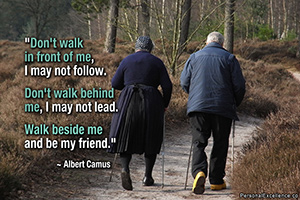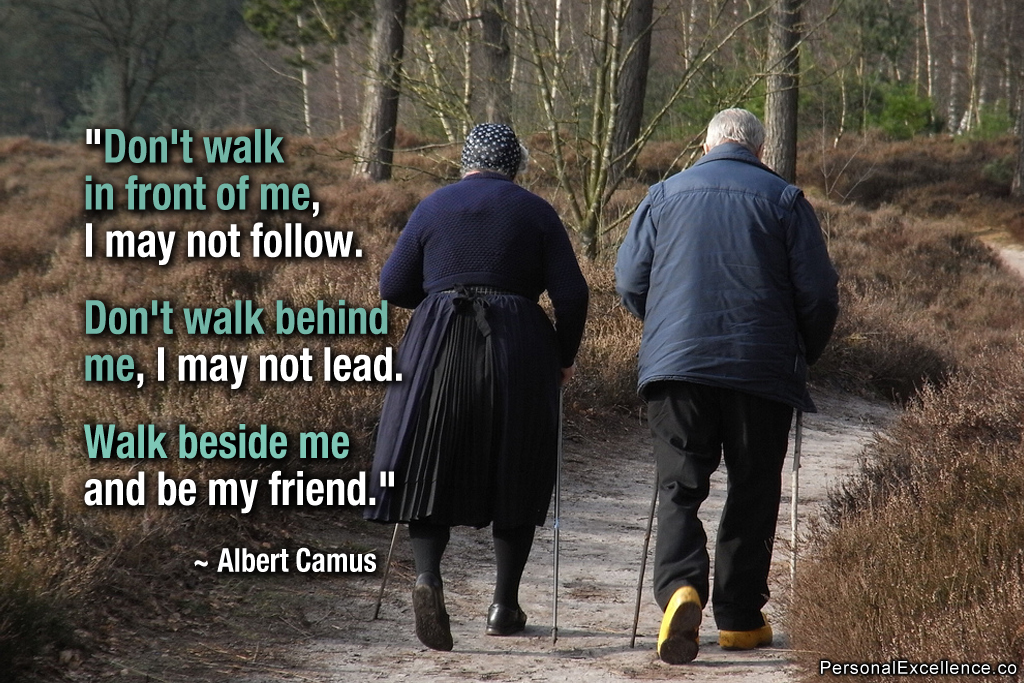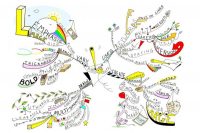
(Image: Cyril Saulnier)
“Hi Celes, my resolution for this day is to turn my weakness into a strength. Do you have any idea how to start ? Thank you.” — irazhane
Any weakness can be turned into a strength. Likewise, any skill you have can also be turned into an expertise. It all boils down to practice.
Have you heard of the 10,000 hours rule? It basically says that when you spend at least 10,000 hours honing a skill, any skill, it will turn into a talent. You can read more about this concept here: 10,000 Hours To Develop Talent.
I strongly believe that talent, or strengths as you are asking, is NOT something that we were born with and can’t change. Some of us may be born with propensities in certain areas, but these do not have to define us. E.g., You don’t necessarily have to be an accountant just because you are good with numbers. Some of us may be born with zero abilities in other areas, but these do not have to define us either. E.g., You need not forgo a career in writing just because you aren’t good at writing.
For example, some readers ask me how I came to write so well. Some conclude that I was “born a writer” or I have a natural flair in writing to do what I do today. Even though they have an interest in starting a blog or pursuing writing (say journalism or freelance writing), they would say that it’s not for them because they can’t write.
(For the record, I do not think I write well. This is just something people tell me. I have much to improve, such as being sharper and being more concise with my words.)
My answer? Lots and lots of writing. I was never a writer; I was a science student in high school and junior college, studied business administration in university, and worked in corporate brand management after I graduated. I’m still not a writer in that I do not see my profession as writing and I have never published any physical books. I’m merely someone who runs a blog and uses writing to reach out to the world.
In that regard, writing is merely something that I developed from being a non-skill to a professional strength. Because I spend (and continue to spend) so much time writing, there is no way I could have changed but become better at it. It is almost a given. Seriously, you have to get better when you invest that much time in something. There is nowhere to go but up!
People have also asked me how I became so good at coaching. (Again, I don’t think this way, just that this is something that people tell me.) Like writing, it was through lots and lots of doing. This includes one-to-one coaching, group coaching, self-coaching, coaching readers through my articles, constantly understanding people to know how I can help them, and constantly pushing the boundaries in how I can help others.
If you think about it, I have done my dues and clocked more than 10,000 hours in both writing and coaching since the start of my journey. I started my blog and personal development business in December 2008. It’s December 2012 now. Since I literally spend all my time thinking about how to help others grow and how to develop myself, I have spent 14,600 hours since then developing my skills! (14,600 hours = 10 hours a day x 365 days x 4 years!)
Whether you are currently weak or strong in something (a skill, subject, whatever) does not define how good you can be in it. What defines how good you can be in a skill/subject is a function of (a) your dedication in building that skill/subject and (b) your passion towards it. Your passion is important because at the end of the day, you need to invest a lot of time to develop expertise in anything at all. (Sorry, there isn’t a shortcut in life in case any of you were looking for one.)
Even if you really suck balls at something at this moment, you can still build it into a strength. Perhaps you may start out shaky, but that’s a given since it is something you are weak in after all. (What, were you expecting some dramatic movie moment where you miraculously ace something you are weak in despite never having practised before? No way! Everyone starts off as a beginner, always! Even the best sportsmen, golfers, business people, and leaders!)
While your first try may be horrible, you will get better with your second try. And even better during your third, fourth, and fifth tries. By your tenth try, you would be no longer be fumbling as much. By your twentieth try, you would be starting to get the hang of things. By your hundredth try, you would be noticing blind spots you never knew were there. By your thousandth ‘try’, this skill would oddly feel like a natural part of you, like it has been one of your limbs all along.
You can’t change what you were born with but you can change how well you become in something through rigorous practice and a wealth of experience. The more time you spend on something, the better you will become. The point is to get clocking on your developmental hours, vs. being obsessed with getting things perfect. The former is a surefire way to improve. The latter is the surefire way to kill your growth and fail in life.
To quote John Wooden, “If you’re not making mistakes, then you’re not doing anything.”
The long and short of it is to invest your hours if you want to become better in something. If you want to be an expert in it, then simply invest more hours, significantly more than what others would put in.
I continue to invest my time in writing, coaching, building my blog, and helping others grow every day, and because of that, it becomes difficult for other people to usurp the expertise I have built in this area. Likewise, when you continuously invest your hours in something every single day, the only direction you can move in is up. And it all starts with that first second/minute/hour you invest in it today.









 Thanks for reading. If you like my free articles, join my private email list and get my latest updates and articles sent right to your inbox.
Thanks for reading. If you like my free articles, join my private email list and get my latest updates and articles sent right to your inbox.